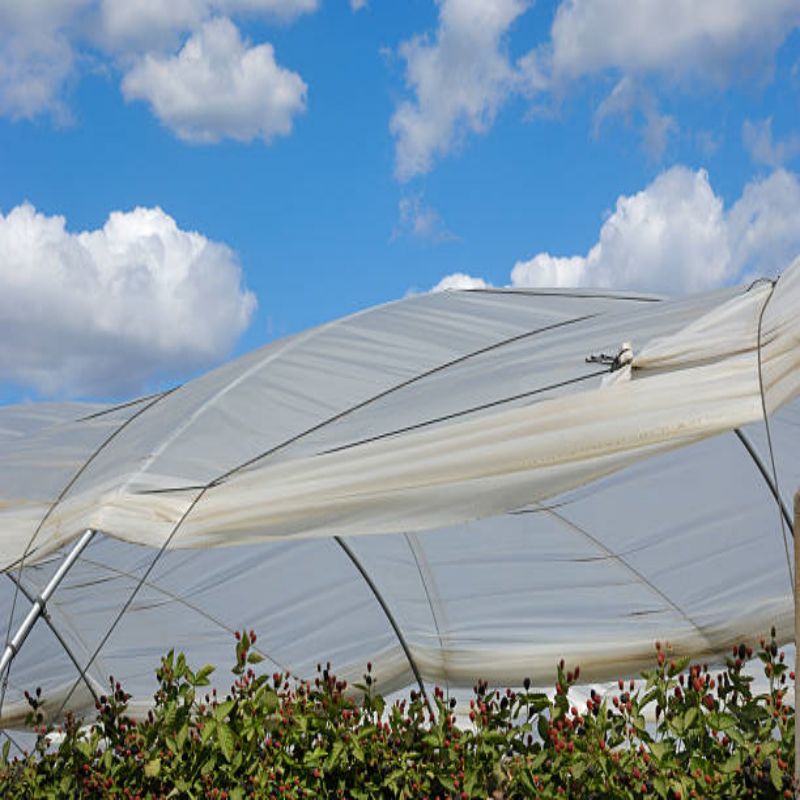Warehouse Tent vs. Container Storage: Which Offers More Flexibility?
Introduction:
When it comes to storage solutions, both warehouse tents and container storage offer unique benefits. However, determining which option provides more flexibility requires a closer examination of their features and capabilities. In this article, we will compare and contrast warehouse tents and container storage to help you make an informed decision for your storage needs.
1. Portability and Mobility between Warehouse Tent vs. Container Storage:
Warehouse tents are highly portable structures that can be easily transported and set up in different locations. They are designed to be lightweight, making them ideal for temporary storage or quick relocation. On the other hand, container storage is less portable as containers are typically larger and require heavy machinery for transportation. This makes warehouse tents a more flexible option when it comes to mobility.
2. Size and Capacity:
When it comes to size and capacity, both warehouse tents and container storage offer a range of options. Warehouse tents can be customized to fit specific dimensions and can be expanded or reduced in size as needed. They can accommodate various storage needs, from small items to large equipment. Container storage, on the other hand, comes in standard sizes and can only provide limited flexibility in terms of capacity. If you require a larger storage space or need to adjust the size of your storage area, warehouse tents offer more flexibility.
3. Versatility between Warehouse Tent vs. Container Storage:
Warehouse tents are versatile structures that can be used for a variety of purposes. They can serve as temporary warehouses, workshops, event spaces, or even recreational areas. Their modular design allows for easy customization and adaptation to different needs. Container storage, however, is primarily designed for storage purposes and may not offer the same level of versatility as warehouse tents. If you require a multi-functional storage solution, warehouse tents are the more flexible choice.
4. Accessibility between Warehouse Tent vs. Container Storage:
Accessibility is an essential factor to consider when comparing warehouse tents and container storage. Warehouse tents typically feature large doors, windows, and open layouts, allowing for easy access to stored items. They can also be equipped with additional features such as ramps, ventilation systems, or lighting. Container storage, on the other hand, may have limited access points and may require additional modifications to improve accessibility. If easy access to your stored items is crucial, warehouse tents offer more flexibility in this aspect.
5. Climate Control between Warehouse Tent vs. Container Storage:
Climate control is a crucial consideration for certain types of stored items. Warehouse tents can be equipped with insulation, HVAC systems, or ventilation to regulate temperature and humidity levels. This makes them suitable for storing sensitive goods such as electronics or perishable items. Container storage, on the other hand, may not offer the same level of climate control unless additional modifications are made. If you require climate-controlled storage, warehouse tents are the more flexible option.
6. Cost-effectiveness:
Cost is an important factor to consider when choosing between warehouse tents and container storage. Warehouse tents are generally more cost-effective as they require less initial investment and can be rented or purchased at a lower price compared to container storage. Additionally, warehouse tents offer flexibility in terms of size and capacity, allowing you to adjust your storage space according to your needs and budget. Container storage, on the other hand, may require higher upfront costs and limited flexibility in terms of customization. If cost-effectiveness is a priority, warehouse tents offer more flexibility in terms of affordability.
7. Aesthetics between Warehouse Tent vs. Container Storage:
Aesthetics may be a consideration depending on the purpose of your storage solution. Warehouse tents, with their customizable designs and fabric covers, can blend in well with various environments. They can be visually appealing and can even be branded or customized for specific events or marketing purposes. Container storage, on the other hand, has a more industrial and standardized appearance, which may not be suitable for certain settings. If aesthetics are important to you, warehouse tents offer more flexibility in terms of visual appeal.
8. Maintenance and Repairs:
Maintenance and repairs are important aspects to consider when choosing a storage solution. Warehouse tents are relatively easy to maintain and repair, as their modular components can be replaced or repaired individually. In case of damage, only the affected part needs to be addressed, reducing downtime and overall maintenance costs. Container storage, on the other hand, may require more extensive repairs in case of damage, as the entire structure is interconnected. If easy maintenance and repairability are important to you, warehouse tents offer more flexibility in this aspect.
9. Temporary vs. Permanent between Warehouse Tent vs. Container Storage:
Another aspect to consider is the duration of your storage needs. Warehouse tents are ideal for temporary or short-term storage requirements, as they can be easily set up and dismantled. They are commonly used for seasonal storage or construction projects. Container storage, however, is typically designed for long-term or permanent storage solutions. If you require flexibility in terms of storage duration, warehouse tents are the more suitable choice.
10. Environmental Impact:
Lastly, considering the environmental impact of your storage solution is crucial. Warehouse tents are often made with eco-friendly materials and can be recycled or repurposed. They have a smaller carbon footprint compared to container storage, which is typically made from steel. Additionally, warehouse tents can be designed with energy-efficient features to reduce energy consumption. If minimizing your environmental impact is a priority, warehouse tents offer more flexibility in terms of sustainability.
In conclusion, both warehouse tents and container storage have their own advantages and disadvantages. However, when it comes to flexibility, warehouse tents offer more versatility in terms of portability, size, versatility, accessibility, climate control, cost-effectiveness, aesthetics, maintenance, temporary usage, and environmental impact. Consider your specific storage needs and requirements before making a decision, ensuring that you choose the option that best suits your unique circumstances.

